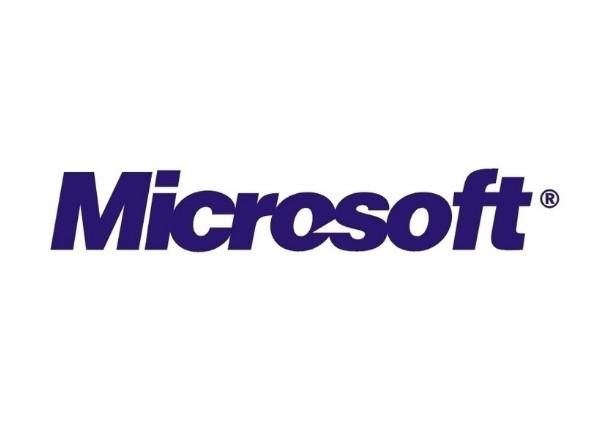
Business
商業(yè)
Microsoft and privacy
微軟與隱私
Change of track
轉(zhuǎn)軌
Data on people's online behaviour are worth both paying for and arguing over
廣告商愿意花錢購(gòu)買記錄人們?cè)诰€行為的數(shù)據(jù),但跟蹤用戶行為是否合理則是一個(gè)值得探討的問題
AN OLD saw has it that half of all advertising budgets are wasted—the trouble is, no one knows which half.
人們常說(shuō):花在廣告上的錢有一半都浪費(fèi)掉了——問題在于沒人知道是哪一半。
In the internet age, at least in theory, this fraction can be much reduced.
在互聯(lián)網(wǎng)時(shí)代,至少在理論上,被浪費(fèi)的那一部分資金中,有很多都可以節(jié)省下來(lái)。
By watching what people search for, click on and say online, companies can aim "behavioural" ads at those most likely to buy.
根據(jù)人們搜索的關(guān)鍵詞、點(diǎn)擊的鏈接及他們?cè)诰W(wǎng)上所說(shuō)的內(nèi)容,企業(yè)可以針對(duì)那些最有可能購(gòu)買它們產(chǎn)品的用戶投放"行為"廣告。
In the past couple of weeks three deals and a quarrel have illustrated the value to advertisers (and their suppliers of software) of such fine-grained information.
在過(guò)去幾個(gè)星期中發(fā)生的三起交易及一場(chǎng)爭(zhēng)論顯示了這些精細(xì)信息對(duì)于廣告商(及他們的軟件提供者)的價(jià)值。
The first deal came on May 23rd, when Oracle said it was buying Vitrue, which helps firms run their marketing on social media, for a reported $300m.
第一起交易是在5月23日,當(dāng)時(shí)甲骨文公司(Oracle)表示它們將收購(gòu)Vitrue,這是一家協(xié)助企業(yè)開展社交網(wǎng)絡(luò)營(yíng)銷業(yè)務(wù)的公司。據(jù)報(bào)道,收購(gòu)金額為3億美元。
On June 5th it added Collective Intellect, which analyses what people say about companies on Facebook, Twitter and so forth, for an undisclosed sum.
6月5日,甲骨文公司稱它們還將收購(gòu)Collective Intellect,但并未透露收購(gòu)價(jià)格。Collective Intellect是一家對(duì)網(wǎng)民在Facebook、Twitter之類的網(wǎng)站上對(duì)企業(yè)的評(píng)價(jià)進(jìn)行分析的公司。
A day earlier Salesforce.com, a cloud-computing company mustard-keen on social media, had said it would pay $689m for Buddy Media, a competitor of Vitrue's.
就在這一消息傳出的前一天(6月4日),極想進(jìn)軍社交網(wǎng)絡(luò)的云計(jì)算公司Salesforce稱將斥資6.89億美元收購(gòu)Buddy Media(Vitrue的競(jìng)爭(zhēng)者之一)。
Buddy should fit in with Radian 6, which, like Collective Intellect, monitors social media—and for which Salesforce paid $326m last year.
Buddy與Radian 6應(yīng)該是可以兼容的。后者在去年被Salesforce以3.26億美元買下,與Collective Intellect一樣,這也是一家對(duì)社交網(wǎng)站的數(shù)據(jù)進(jìn)行分析的公司。
The quarrel is the latest round in a long-running argument.
前面提到的爭(zhēng)論則是已經(jīng)持續(xù)了相當(dāng)長(zhǎng)時(shí)間的一場(chǎng)論戰(zhàn)的最新一輪。
Should advertisers assume that people are happy to be tracked and sent behavioural ads? Or should they have explicit permission?
廣告商們做出如下假設(shè)是否合理:用戶愿意廣告商記錄他們的在線行為并且愿意接受廣告商投放的行為廣告?廣告商是否應(yīng)該得到用戶明確的許可?
Many people give scarcely a thought to being electronically snooped on as they browse, but some object furiously.
許多人對(duì)于自己的在線行為被監(jiān)控的做法毫不在乎,但有些人則強(qiáng)烈反對(duì)。
In December 2010 America's Federal Trade Commission proposed adding a "do not track" (DNT) option to internet browsers, so that users could tell advertisers that they did not want to be followed.
2010年12月,美國(guó)聯(lián)邦商務(wù)委員會(huì)建議在瀏覽器中加入"不允許跟蹤(DNT)"的選項(xiàng),通過(guò)啟用這一功能,用戶可以告訴廣告商他們不希望自己的在線行為被跟蹤。
Mozilla's Firefox, Microsoft's Internet Explorer and Apple's Safari all offer DNT; Google's Chrome is due to do so this year.
摩斯拉(Mozilla)的火狐(Firefox)、微軟(Microsoft)的IE(Internet Explorer)及蘋果的瀏覽器Safari都有"不允許跟蹤"選項(xiàng);今年,谷歌也將在Chrome中加入這一功能。
In February the FTC and the Digital Advertising Alliance (DAA), a consortium of trade bodies, agreed that the industry would get cracking on responding to DNT requests.
2月份,聯(lián)邦商務(wù)委員會(huì)(FTC:Federal Trade Commission)和數(shù)字廣告聯(lián)盟(DAA:Digital Advertising Alliance,一個(gè)商貿(mào)團(tuán)體聯(lián)盟)已經(jīng)達(dá)成一致意見:廣告行業(yè)應(yīng)該著手處理用戶提出的"不允許跟蹤"請(qǐng)求。
In the European Union a new rule requires websites to ask before using "cookies" to gather data about users' behaviour.
歐盟出臺(tái)的一項(xiàng)新規(guī)定要求網(wǎng)站在利用"cookies"收集用戶在線行為的信息之前需要征得用戶的同意。
On May 31st Microsoft set off the row. It said that Internet Explorer 10, the version due to appear with Windows 8, a new incarnation of the software firm's operating system, would have DNT as a default.
5月31日,微軟率先挑起了爭(zhēng)論。微軟稱即將與Windows8(該公司的新版操作系統(tǒng))一起推出的IE10中,"不允許跟蹤"是默認(rèn)設(shè)置。
Advertisers are horrified. Human nature being what it is, most people stick with default settings.
這個(gè)消息令廣告商們惶恐不已。大多數(shù)用戶都不會(huì)去修改瀏覽器的默認(rèn)設(shè)置,這是人的本性使然。
Few switch DNT on now, but if tracking is off it will stay off.
現(xiàn)在很少有人會(huì)開啟"不允許跟蹤"功能,但如果默認(rèn)就是"不允許跟蹤",那么"跟蹤"功能就會(huì)一直處于關(guān)閉狀態(tài)。
Bob Liodice, the chief executive of the Association of National Advertisers, one of the groups in the DAA, says consumers will be worse off if the industry cannot collect information about their preferences.
美國(guó)廣告主協(xié)會(huì)(the Association of National Advertisers)是數(shù)字廣告聯(lián)盟下屬的一個(gè)組織,該協(xié)會(huì)會(huì)長(zhǎng)Bob Liodice稱,如果廣告商不能收集有關(guān)用戶偏好的信息,那么這對(duì)于消費(fèi)者來(lái)說(shuō)將更為不利。
People will not get fewer ads, he says. "They'll get less meaningful, less targeted ads."
這并不意味著用戶會(huì)看到的廣告會(huì)變少。"他們看到的將是那些更沒有意義、更沒有針對(duì)性的廣告",他說(shuō)道。
It is not yet clear how advertisers will respond.
廣告商們會(huì)對(duì)此作何反應(yīng)仍不清楚。
Getting a DNT signal does not oblige anyone to stop tracking, although some companies (including Twitter) have promised to do so.
即使用戶選擇"不允許跟蹤",這也無(wú)法迫使任何一家廣告商停止跟蹤用戶在線行為,盡管有些企業(yè)(包括Twitter)已經(jīng)承諾會(huì)根據(jù)用戶的要求決定是否跟蹤。
Unable to tell whether someone really objects to behavioural ads or whether they are sticking with Microsoft's default, some may ignore a DNT signal and press on anyway.
由于無(wú)法分辨用戶是真的反對(duì)行為廣告還是因?yàn)樗麄冎皇菦]有修改微軟瀏覽器的默認(rèn)設(shè)置,一些公司可能忽略"不允許跟蹤"信號(hào),繼續(xù)記錄用戶的在線行為。
Also unclear is why Microsoft has gone it alone.
為什么單單微軟會(huì)采取這樣的措施?
After all, it has an ad business too, which it says will comply with DNT requests, though it is still working out how.
個(gè)中原因仍不清楚。要知道,微軟自身也有廣告業(yè)務(wù)。微軟稱它們將根據(jù)用戶的"不允許跟蹤"來(lái)決定是否記錄用戶在線行為,不過(guò)具體實(shí)施方案仍在研究當(dāng)中。
If it is trying to rile Google, which relies almost wholly on advertising, it has chosen an indirect method: there is no guarantee that DNT by default will become the norm.
如果微軟想要激怒Google(幾乎所有收入都來(lái)自廣告業(yè)務(wù))的話,那么此舉則是一個(gè)間接的方法:沒人能保證將"不允許跟蹤"作為瀏覽器的默認(rèn)設(shè)置會(huì)成為行業(yè)規(guī)范。
DNT does not seem an obviously huge selling point for Windows 8—though the firm has compared some of its other products favourably with Google's on that count before.
這似乎并不是Windows8很明顯的一大賣點(diǎn)——在此之前,微軟將其他產(chǎn)品與Google對(duì)應(yīng)的產(chǎn)品進(jìn)行了對(duì)比,認(rèn)為自己的產(chǎn)品更勝一籌。
Brendon Lynch, Microsoft's chief privacy officer, blogged: "We believe consumers should have more control."
微軟的首席隱私官布倫丹?林奇(Brendon Lynch)在博客中寫道:"我們認(rèn)為用戶應(yīng)該有更大的話語(yǔ)權(quán)。"
Could it really be that simple?
真的是這么簡(jiǎn)單嗎?



